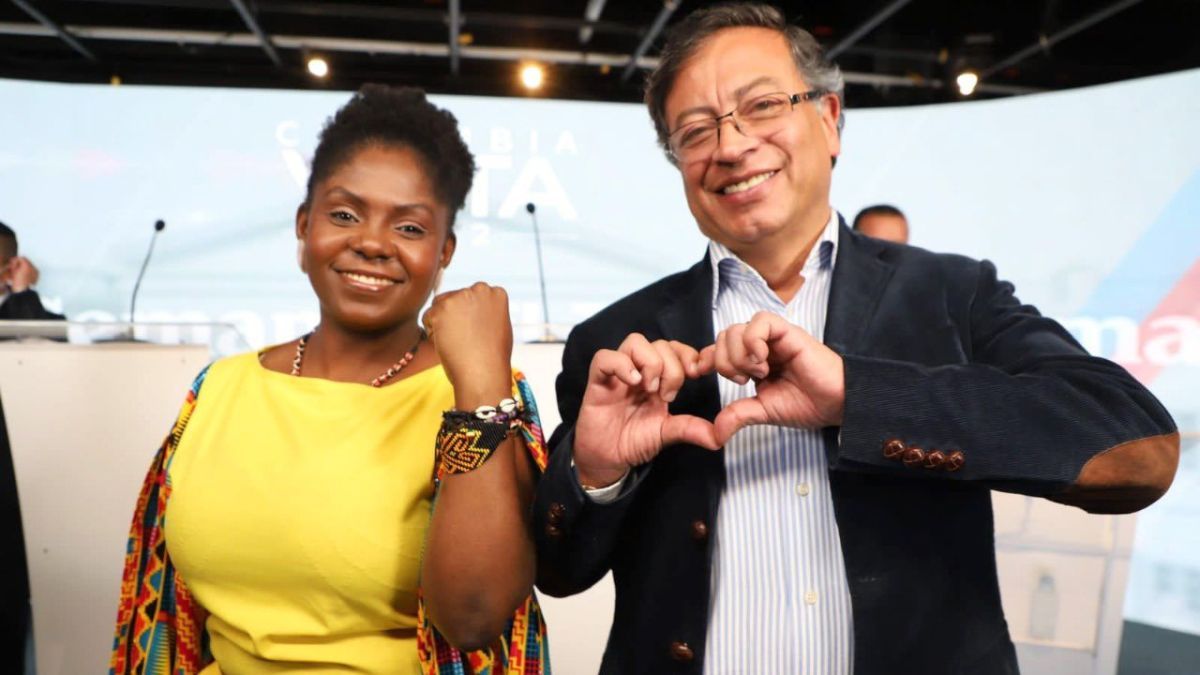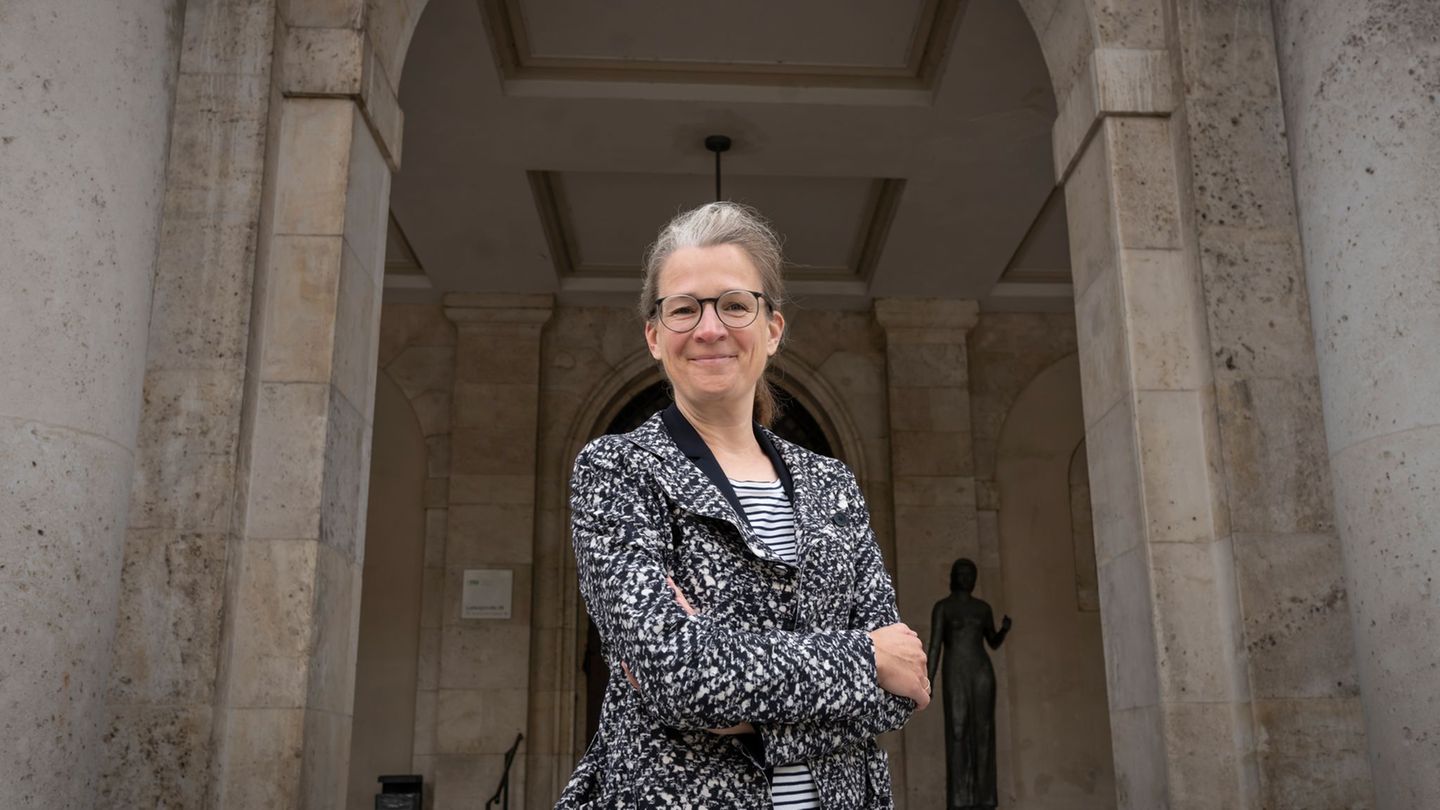The elected president of Colombia considered tonight that the electoral day constituted “a holiday for the people” and exhorted Colombians to celebrate “the first popular victory.” The environmentalist leader Francia Márquez will also mark history after being elected as the country’s first African vice president.
Likewise, Hernández asked the president-elect to be “faithful to his speech against corruption” in his future administration at the head of the Palacio de Nariño.
“That Colombia is heading towards the change that prevailed” in the elections at the end of May, Hernández demanded in a speech broadcast through his social networks, in which he thanked the citizens who accepted his proposal “even if it was a loser.”
The outgoing Colombian president, Ivan Duke, spoke on the phone with his successor to congratulate him on his victory in the runoff. “I called Gustavo Petro to congratulate him as Colombian president-elect. We agreed to meet in the next few days to start a harmonious, institutional and transparent transition”Duke said on Twitter.
More than 39 million voters were eligible to vote in the second round of the presidential election. The polls, which opened at eight in the morning (1300 GMT), closed at 4:00 p.m. (2100 GMT) and the counting of the votes began immediately.
The senator and former mayor of Bogotá, Petro, was the undisputed leader in the polls prior to the first round, where he prevailed with 40% in the elections held on May 29.. It is the third time that the economist (former guerrilla who signed the peace in the nineties) competes for the presidency. He represented the promise of a historic left turn for the first time in history.
page16-COLOMBIA-ELECTIO_opt.jpeg
DOUBTS. The ex-guerrilla Gustavo Petro remained the undisputed favorite and prevailed in the first round with 40% of the votes. His rival Rodolfo Hernández garnered 28% but attracted the support of traditional right-wing voters in his favor and the election is expected to be tight.
For its part, Rodolfo Hernandez, a businessman in the construction sector in his country, was the surprise when he obtained second place with 28% of the votes and left Federico “Fico” Gutiérrez, the candidate of the former president and historic owner of Colombian politics, in the running. Alvaro Uribe. To achieve this, the former mayor of Bucamaranga took the fight against corruption as central ideas in his campaign speech and mounted a bizarre campaign on social networks, in addition to making a series of “populist” promises.
Faced with this scenario, Colombian citizens took these two candidates from the extremes to the ballot. There was no election for the historical political parties, which is why this electoral process in Colombia is quite a phenomenon. If Petro wins, the left will come to power for the first time and if the victory goes to Hernández, a millionaire without a party entangled with justice will be at the head of the country.
Petro proposes economic and social reforms to combat poverty, inequality and exclusion that captivated millions of poor people, although they arouse fear among businessmen and financial markets.
“Finally, thank my God. I know he is going to be a good president and he is going to help the less favored, this is going to change for the better,” said Alejandro Forero, a 40-year-old disabled and unemployedwhile crying in his wheelchair in a Bogota coliseum where Petro’s supporters gathered.
the president elect promised in the campaign to start a peace negotiation with the guerrillas of the National Liberation Army (ELN)to implement the 2016 peace agreement with the demobilized FARC guerrilla, including the dissidents that returned to the armed struggle, and to seek the submission of the criminal gangs involved in drug trafficking.
The country is still immersed in an internal conflict of almost six decades that has left 260,000 dead, despite the peace agreement that allowed 13,000 members of the FARC to lay down their arms, reintegrate into civilian life and form a political party.
Nevertheless, Petro must seek alliances in Congress to promote the economic and social reforms with which he committed himself, because he does not have a majority despite the good vote that the left achieved in the March legislative elections.
“Today I voted for my daughter, two weeks ago I celebrated her 15th birthday and she only asked me for a gift, to vote for Petro, since she couldn’t. I never vote, but it is the gift for the woman who gives me the strength to get up all every day to fight,” Pedro Vargas, a 48-year-old security guard, told Reuters.
“I hope this man fulfills the expectations of my daughter, who has great faith in his promises,” added Vargas, who voted at a polling station in western Bogotá.
The third time was the charm
The election of Petro, after two failed attempts, adds Colombia -with 50 million inhabitants- to other Latin American countries, such as Chile, Mexico and Peru, in which leftist leaders govern.
“We are one step away from achieving the real change that we have waited for all our lives,” Petro said on his Twitter account before the elections. “There are no doubts, only certainties. We are going to make history.”
The defeated Hernández promised to cut state spending, fight corruption to obtain the necessary resources to finance his economic and social programs, as well as a plan to deliver free drugs to addicts and discourage drug trafficking.
The controversial 77-year-old millionaire who made his fortune in the construction sector faces an investigation for allegedly intervening in the award of a garbage management contract while he was mayor of the city of Bucaramanga.
Although the contract was not signed, it sought to benefit a company and one of his sons who would have lobbied in favor of the company, according to witnesses.
The businessman, outside the traditional political parties and who became famous for his appearances on the TikTok network, denies the accusations.
Some 300,000 members of the Armed Forces and the National Police monitored the elections and protected more than 12,500 polling stations to counter possible attacks by illegal armed groups.
Defense Minister Diego Molano said that an investigation was launched to clarify the murder of an electoral witness in the municipality of Guapi, in the department of Cauca, in the southwest of the country.
Source: Ambito
David William is a talented author who has made a name for himself in the world of writing. He is a professional author who writes on a wide range of topics, from general interest to opinion news. David is currently working as a writer at 24 hours worlds where he brings his unique perspective and in-depth research to his articles, making them both informative and engaging.




